LAB2FAB
Workshop 2022
Rising Stars
Connecting the microsystems industry with highly qualified people in Canada
The Rising Stars program aims to connect industry technology developers with outstanding early-career talent to overcome challenges and strengthen industrial R&D in Canada.

Abdelrahman Askar
Simon Fraser University

Brett Poulsen
Western University

Daniel Hutama
University of Ottawa

Jonathan Bouchard
Université de Sherbrooke

Liena Zaidan
University of Waterloo
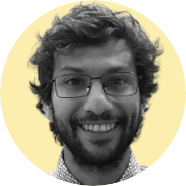
Mohamed Najah
Université de Sherbrooke
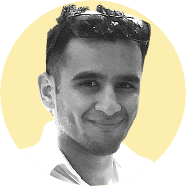
Mustafa Hammood
University of British Columbia

Raphael Dawant
Université de Sherbrooke

Ryan Plumadore
University of Ottawa
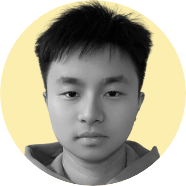
Shangxuan Yu
University of British Columbia
What is a Rising Star?
Students and researchers gain valuable hands-on experience in micro-nanotechnology facilities. This skillset is an asset to industry for accelerated research and development. Rising Stars are post-secondary students identified to be among Canada’s best and brightest emerging talent in microsystems design and fabrication.
How to participate?
What to expect?
Rising Stars will be asked for a photo and short bio (50-100 words) to be published here and promoted at the conference. LAB2FAB attendees will reach out to the “Rising Stars” to discuss opportunities via the contact information on the event website and onsite during the workshop. “Rising Stars” can reach out directly to workshop participants who have opportunities during networking sessions or using the contact information posted during presentations in Session 3: R&D Milestones and Future Talent.

Shedding Light on Innovation | 2022 Workshop

Abdelrahman Askar
Abdelrahman is working on his Ph.D. at Simon Fraser University exploring the potential of novel high-frequency devices using unconventional 2D materials. Abdelrahman has two MSc degrees in Microelectronics from Germany and Canada. Since 2011, Abdelrahman has been actively engaged in academic research activities focusing on microfabrication and nanotechnology. Over the years, Abdelrahman has accumulated solid expertise in micro-/nano-fabrication and device/material characterization through working at state-of-the-art cleanrooms and labs across Germany & Canada. Abdelrahman has been awarded many scholarships and awards over the course of his studies, with the Vanier Canada Graduate Scholarship being the most important of them.
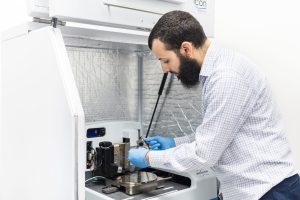

Brett Poulsen
Brett Poulsen is a Ph.D. candidate with the Nano-Photonic Sensor Engineering (NPSE) group in the Department of Electrical and Computer Engineering at the University of Western Ontario. He obtained his M.E.Sc. in Electrical Engineering, B.E.Sc. in Electrical Engineering, and B.Sc. in Computer Science from the University of Western Ontario. He specializes in optomechanical photonic sensors and actuators. He was the co-founder and CTO of recently acquired Accumine Technologies, founded in 2016, producing advanced Industrial Internet-of-Things (IIOT) systems for Smart Factories across the globe. He is the co-founder and CEO of LightSail, a Canadian start-up founded in 2021 developing integrated optical and photonic systems for small-satellite hyperspectral imaging and optical communication.

Daniel Hutama
Daniel simultaneously completed a B.Com. in finance and a B.Sc. in physics at McGill University before entering the field of integrated quantum photonics. He is currently a Ph.D. student at the University of Ottawa investigating continuous variable quantum key distribution (CV-QKD). His primary research goal is to accomplish a CV-QKD system that can fit into an industry-standard small form-factor pluggable module compatible with existing optical aggregators and line systems. Together with professor Ksenia Dolgaleva, Daniel is leading a Canadian initiative to develop the world’s first process design kit for integrated photonics with support for quantum and nonlinear functions, such as single photon generation and second harmonic generation. His goal is to create an end-to-end pipeline for the design, fabrication, testing, packaging, and commercialization of quantum photonic devices.
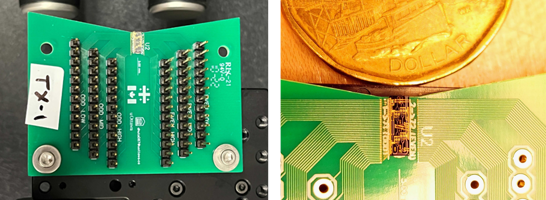

Jonathan Bouchard, ing, M. Sc. A.
Jonathan Bouchard is a Ph.D. student with the Groupe de recherche en appareillage médical de Sherbrooke (GRAMS) in the Department of Electrical and Computer Engineering at the Université de Sherbrooke. He specializes in highly integrated system design and advanced printed circuit board design in the field of medical instrumentation and imaging. Jonathan’s thesis aims at developing a new generation of ultra-high resolution brain positron emission tomography (PET) scanner and supporting development of PET inserts compatible with simultaneous magnetic resonance imaging. Jonathan is one of the main electronic designers supporting the LabPET II technology for preclinical and clinical medical imaging system. His main research interests are mixed-signal printed circuit board design, design for manufacturing, advanced system integration, high reliability electronics, signal integrity and EMI/EMC-optimized design. Jonathan also holds a bachelor’s degree and a master’s degree in electrical engineering from the Université de Sherbrooke focused on ultra-precise (< 10 ps) photon time-of-flight measurement and time-correlated single-photon counting system for medical imaging.
Aside from his Ph.D., Jonathan is a self-employed electronic design consultant and a senior electronic designer for Oneka Technologies which whom he designs data acquisition system for remote monitoring of wave-powered desalinization buoy. He is also a lecturer at the Université de Sherbrooke for the advanced electronics design course since 2016.

Liena Zaidan
Liena Zaidan is a Ph.D. student at the faculty of electrical and computer engineering at the University of Waterloo. Zaidan’s research investigates field effect transistor (FET) biosensors and the advancement in biosensing research for infectious diseases. Her primary research goal is to realize early and timely disease detection through miniaturized handheld/wearable point-of-care devices that are affordable for all. Her research focus has partially developed from her work experience in renewable energy projects in rural areas in developing countries in Africa, where she felt the need for rapid, reliable biosensors that are accessible to all, including the less fortunate communities.
Before her Ph.D., she was a master’s student at the Nano and Microsystems Lab and worked in pioneering biosensing research under Dr. Mustafa Yavuz’s supervision. She received her B.Sc. degree in electrical and computer engineering at the University of Alabama.

Mohamed Najah
Mohamed received his engineering degree in microelectronics from École Nationale Supérieure des Mines de Saint-Etienne (ENSMSE), France, and his master’s degree in Nanotechnology from Université Aix-Marseille – ENSMSE, France, both in 2014. From 2015 to 2016 he was an R&D engineer in ENSMSE and ST-Microelectronics Rousset where he worked on the fabrication and characterization of Back-end-of-line thermos-mechanical MEMS switches. He completed his Ph.D. at the Université de Sherbrooke (UdS) from 2016 to 2022. He carried-out research on Wafer-Level Packaged (WLP) RF MEMS, manufactured using the C2MI industrial prototyping fabrication lines, with an emphasis on the performance and reliability of electromechanical contacts. Since 2022, he has been a postdoctoral fellow at the C2MI where he is actively involved in the development of Fan-Out WLP fabrication process. His research interests include embedded electronics, MEMS, packaging, process integration, and reliability of microsystems.
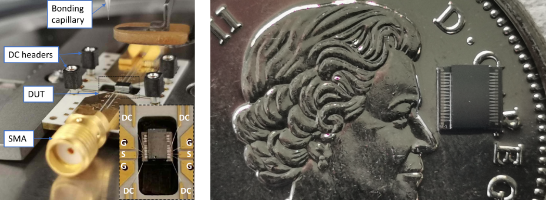

Mustafa Hammood
Mustafa Hammood is a Ph.D. candidate at the University of British Columbia. His primary research focus is on developing unique and high-performance silicon photonic WDM filter devices and translating them from the prototyping stage to commercially viable devices that can be fabricated on mass-producible silicon photonic platforms. In addition to his research, he is passionate about advancing the silicon photonics ecosystem in general, and in Canada particularly, by developing electronic-photonic-design-automation (EPDA) solutions and process design kits (PDKs), photonic test and measurement solutions, and helping advance silicon photonic fabrication and packaging efforts at SiEPICfab. Additionally, he co-founded a silicon photonic design house start-up, SiEPIC Kits, and he is passionate about entrepreneurship in the photonics industry in general.

Raphaël Dawant
Raphaël holds a master’s degree in physical engineering from the University of Louvain in Belgium and prepared his master’s thesis on the fabrication of spintronic devices at IMEC in Leuven, Belgium. He is presently a Ph.D. student at the Université de Sherbrooke’s Department of Electrical and Computer Engineering, where he leads research on resistive memories for artificial intelligence applications. His research focuses on the manufacturing of nanodevices using plasma-etching, CMP, and electron beam lithography. By providing an industrial-compatible fabrication method, Raphaël’s thesis look for futur integrated circuits, more e efficient and less energy consuming, for artificial intelligence applications. Raphaël is also developing electron beam lithography methods for 3IT and industrial partners while working as staff support.

Ryan Plumadore
Ryan Plumadore is a Ph.D. student in the Department of Physics at the University of Ottawa. Before his Ph.D., he completed his B.Sc. (Hons) in Physics-Mathematics, and in his master’s thesis he studied the fabrication and characterization of two-dimensional (2D) materials with low temperature & ultrahigh vacuum scanning tunneling microscopy and spectroscopy (STM/S). His Ph.D. thesis extends that goal to the fabrication of ultraclean 2D van der Waals heterostructure devices, specifically tailored for STM experiments. He is a recipient of the Ontario Graduate Scholarship.

Shangxuan Yu
Shangxuan completed a B.ASc in Material engineering at the University of British Columbia. He is finishing his M. ASc in Electrical and Computer Engineering Department and turning to Ph.D. study under Prof. Lukas Chrostowski’s supervision.
Shangxuan is passionate about nanofabrication technologies. He spent most of his time in SBQMI ANF at UBC or 4D labs at SFU doing process development and characterization during his master’s study. Shangxuan’s research focuses on hybrid integration utilizing photonics wire bonding (PWB) to integrate different photonics components (DFB laser, optical fibre, integrated photonics chips etc.) and material platforms (SOI, III-V and LiNbO3). To fully exploit the power of PWB hybrid integration, he is exploring building compact hardware systems for optical computing applications. Shangxuan is also working on developing an on-chip integrated spectrometer enabled by topological structure and aiming to push the resolution beyond the commercially available desktop products.